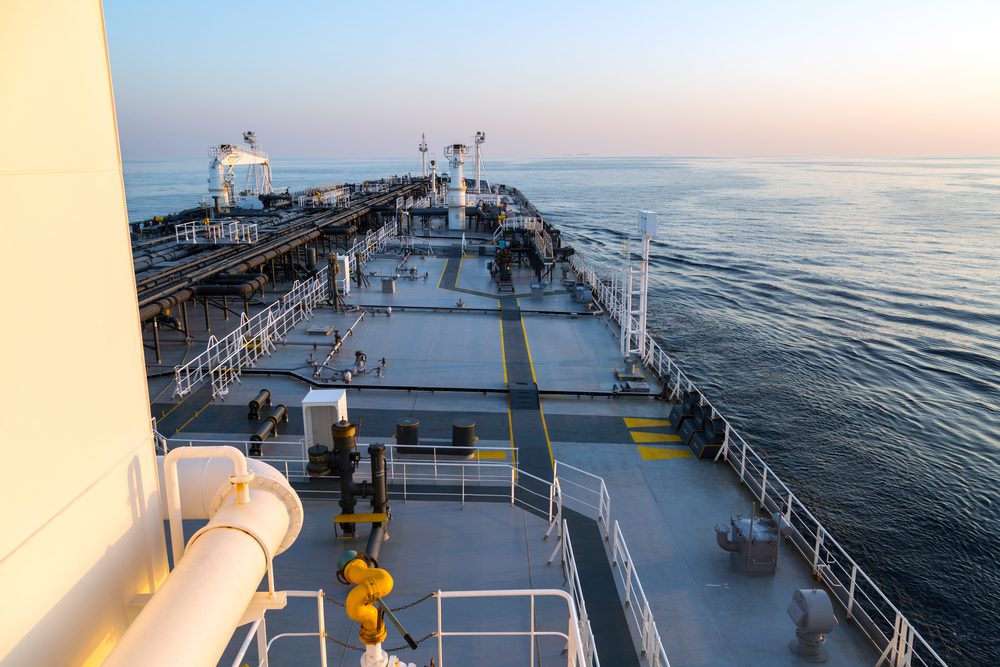Iran Likens U.S. to ‘Pirates of the Caribbean’
DUBAI, Oct 30 (Reuters) – Iran accused the United States on Friday of acting like the “Pirates of the Caribbean” after Washington said it had sold off Iranian crude oil...

By Anatoly Menzhiliy / Shutterstock
(Bloomberg) –The cost of insuring Middle East oil shipments is soaring as tensions mount in a region responsible for about a third of all seaborne petroleum.
So-called war risk premiums for a standard oil cargo from the Persian Gulf and the tanker hauling it can now cost upwards of $500,000, according to people familiar with the insurance market. Earlier this year, the same premiums would have cost owners less than 1/10 of that.
The vulnerability of maritime traffic to mounting tensions came into sharp focus on Monday when U.S. President Donald Trump said other nations need to do more to help protect navigation from the Middle East in the wake of six attacks on tankers since early May. The incidents, which American officials blamed on Iran, prompted an adviser to insurers to classify the entire Persian Gulf as a riskier area for shipping, giving underwriters scope to charge bigger premiums.
“This will get passed on the the customers,” said Sandy Fielden, an analyst at Morningstar Inc. “Refiners are paying more for crude and they will pass on the cost to customers if they can. If refiners choose not pass that along, their margins would get squeezed.”
The insurance prices being lifted fall into two categories: one is for the vessels themselves, the other for their cargoes. While the cost of covering the tankers surged as soon as the most recent attacks happened, the surge in prices for the cargoes only happened over the past week.
Underwriters are now aiming to charge anywhere from $150,000 to $325,000 to cover a cargo valued at $130 million, the people familiar with that market said. Until this week, the same cover cost $1,000 or less. Insuring the tanker itself now costs in excess of $200,000, based on a $75 million vessel. That’s up from less than $30,000 at the start of 2019.
It’s not just the insurers who’ve turned more wary about the Middle East. Ship owners themselves are raising rates to lift barrels from the region, despite signs that there are plenty of vessels that in theory are available to haul cargoes.
Despite the surge in insurance premiums, the extra cost is still a small part of a barrel of crude. Based on standard supertanker cargo, $500,000 would equate to 25 cents per barrel. Brent futures traded at about $64.30 on Monday in London.
–With assistance from Ann Koh.
© 2019 Bloomberg L.P
This article contains reporting from Bloomberg, published under license.

Sign up for gCaptain’s newsletter and never miss an update

Subscribe to gCaptain Daily and stay informed with the latest global maritime and offshore news
Essential news coupled with the finest maritime content sourced from across the globe.
Sign Up